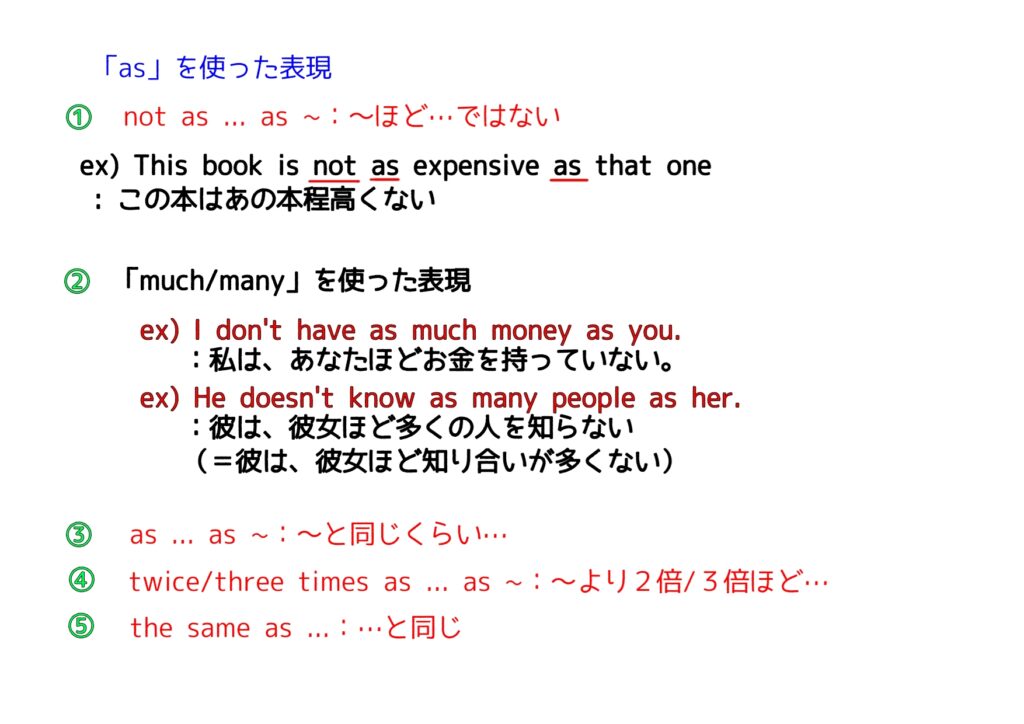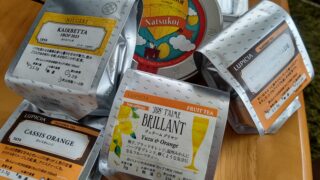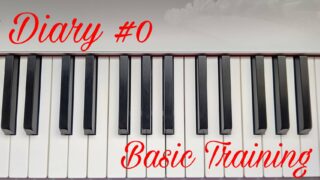第73回:比較表現にも色々ある。

「as」やら「too」やら色々活用するので、丁寧に確認を進めてみましょう。
Q. この記事で、一番大事なことって何?
A. 大事なことを、1枚の画像にまとめました。

いちいちノートにまとめるのが面倒だという方、また、
ノートにまとめることが苦手だという方は、ご活用ください。

[広告]
確かな英語力は、日々の継続から。
その継続を後押しする、第二言語習得理論に基づいた
オンライン英語学習プログラムがあります。
英語を使う人のための、確実なスキルアップが望める
7日間の無料体験はこちらから!

比較表現を活用した構文
- 「as + 形容詞/副詞 + as」を使って、ある物事や人物が他の物事や人物のようであること、ある状況が別の状況と似ていることを表現します。
例えば、「Was the film as funny as his last one?」(その映画は前回の映画ほど面白かったですか?)や「I came round as quickly as I could.」(できる限り早く回復しました)といった文です。このような文の否定形では、”not as”または”not so”のどちらを使うこともできます。
より正式な話し言葉では、”less + 形容詞 + than”を使用することが一般的です。「The gap between the sides is not as / so wide as it was.」(両側の隙間は以前ほど広くありません)または「is less wide than it was.」(以前ほど広くありません) - 形容詞と2番目の”as”の間に単数形の可算名詞を置く場合、その名詞の前に”a/an”を使用します。
「Despite his disability, he tried to lead as normal a life as possible.」(彼は障害があるにもかかわらず、できるだけ普通の生活を送ろうとしました)(”as normal life as”ではなく、”as normal a life as”となります)このような文の否定形では、”not as”または時々”not such”を使用することができます。「It’s not as quiet a place (or not such a quiet place…) as it used to be.」(以前ほど静かな場所ではありません)
ただし、”not as + 形容詞 + a/an + 名詞”となりますが、”not such a/an + 形容詞 + 名詞”とはなりません。同様の方法で、”so”や”too”、”how”を使って、形容詞に続けて使用することもできます。「It’s not quite so straightforward a problem as it might at first seem.」(最初に見えるほど簡単な問題ではありません)や「How big a piece do you want?」(どれくらい大きなピースがほしいですか?)、「’Conspiracy’ is perhaps too strong a word.」(「陰謀」という言葉はおそらく強すぎると言えるでしょう。) - 「as much / many as」または「as little / few as」を使って、数量や量が予想よりも多いまたは少ないことを表現します。
“many”や”few”は数字の前でより一般的に使用されますが、”much”や”little”は金額(例: $5, 20%)や距離(例: 3メートル)といった量や距離の前でより一般的に使用されます。「There are a small number of people involved, possibly as few as twenty.」(関与している人は少数です、おそらく20人ほどです)や「Prices have increased by as much as 300%.」(価格は最大で300%増加しました)。
- “not + 形容詞/副詞 + enough + to-infinitive”を使って、あることを行うのに十分なだけの量がないことを表現します。
「He didn’t speak loudly enough to be heard.」(彼は聞こえるほど大きな声では話しませんでした)や「I’m not tall enough to reach.」(私は手が届くほど背が高くありません)。
同様の意味を表現するために、形容詞の前に”sufficiently”を使用することもあります。”sufficiently”はより形式的な文脈でよく使用されます。「She didn’t play sufficiently well to qualify.」(彼女は予選に進むために十分に上手くプレーしませんでした)や「… well enough to qualify.」(予選に進むために十分に上手くプレーしませんでした)。 - “too + 形容詞/副詞 + to-infinitive”を使って、「必要以上、可能以上」などの意味であることを表現します。
「It moved too fast to see it clearly.」(それは速すぎてはっきりとは見えませんでした)や「They arrived too late to get seats.」(彼らは席を取るには遅すぎました)、「The suitcase was too small (for him) to get all his clothes in.」(そのスーツケースは彼の服を全部入れるには小さすぎました)。
比較的形式的な英語では、”too + 形容詞 + a/an + 名詞”を使用することもあります。「I hope you haven’t had too tiring a day.」(あなたの1日があまりにも疲れる日ではないことを願っています)(”a too tiring day”ではなく、”too tiring a day”となります)。(よりカジュアルなスタイルでは、「I hope your day hasn’t been too tiring.」と言うこともあります) - 「so + 形容詞/副詞 + that節」を使って、ある程度まで存在したり起こったりすることによって特定の結果が生じたことを表現します。
例: 「It’s so simple that even I can do it.」(それはとても簡単なので、私でもできます)や「He came in so quietly that I didn’t hear him.」(彼はとても静かに入ってきたので、私は彼のことに気づきませんでした)。
より少ない頻度で、「so + 形容詞/副詞 + as + to-infinitive」を使って同様の意味を表現することもあります。→ 「The difference was so small that it wasn’t worth arguing about.」(その違いは非常に小さかったため、議論する価値はありませんでした)と「The difference was so small as to not be worth arguing about.」(その違いは非常に小さいため、議論する価値がない)。(「The difference was so small as to not be worth arguing about.」は、「その違いは非常に小さいため、議論する価値がない」という意味です)。
また、「go so / as far as + to-infinitive」という表現を使って、驚くべき行動や極端な行動について話すこともあります。「One furious woman went so / as far as to throw tomatoes at the minister.」(怒った女性が大臣にトマトを投げるほど遠くまで行った)といった例です。
具体例
- Comparative phrases and clauses:
- Example 1: The book was not as interesting as I had hoped. (or The book was not so interesting as I had hoped.)
- Example 2: She didn’t dance as gracefully as her sister. (or She didn’t dance so gracefully as her sister.)
- Example 3: He didn’t speak as loudly as required. (or He didn’t speak so loudly as required.)
- Singular countable noun between an adjective and the second “as”:
- Example 1: She is not as talented a singer as her brother. (or She is not such a talented singer as her brother.)
- Example 2: It’s not as difficult a task as it seems. (or It’s not such a difficult task as it seems.)
- Example 3: It’s not as expensive a restaurant as we thought. (or It’s not such an expensive restaurant as we thought.)
- Quantity or amount larger or smaller than expected:
- Example 1: The project cost as much as $1 million. (or The project cost as little as $1 million.)
- Example 2: The journey took as long as three hours. (or The journey took as little as three hours.)
- Example 3: He received as many as 50 birthday cards. (or He received as few as 50 birthday cards.)
- Not + adjective/adverb + enough + to-infinitive:
- Example 1: The music wasn’t loud enough to be heard. (or The music wasn’t sufficiently loud to be heard.)
- Example 2: She didn’t study hard enough to pass the exam. (or She didn’t study sufficiently hard to pass the exam.)
- Too + adjective/adverb + to-infinitive:
- Example 1: The package was too heavy to lift. (or The package was excessively heavy to lift.)
- Example 2: The room was too noisy to concentrate in. (or The room was excessively noisy to concentrate in.)
- So + adjective/adverb + that-clause:
- Example 1: The movie was so captivating that I couldn’t take my eyes off the screen.
- Example 2: He ran so fast that he won the race easily.
Additional Example:
- Example: The cake was so delicious as to leave everyone wanting more.
[広告]
TOEICのスコアを上げたいけれど、
まとまった勉強時間が取れなくて困っている…
なら、細かいスキマの時間を使いながら、
少しずつスキルを積み重ねてみてはどうでしょう。
スマホ1つでスコアアップが出来る、
オンライン講座のリンクはこちらから。

Q. この文法はどうやって使うのでしょうか?
A. 今回の文法を活用した会話文を見てみましょう。

I didn’t enjoy the movie. It wasn’t as exciting as I thought it would be.
(映画があまり楽しくなかった。思っていたほど興奮しなかったんだよね。)

Really? I found it quite thrilling. I guess we have different preferences.
(本当?私はかなりスリリングだと感じたよ。まあ、好みが違うのかもね。)

Yeah, it’s interesting how different people can have such contrasting opinions on movies. What specifically did you find thrilling about it?
(そうだね、映画について人々の意見がこんなに対照的なんて興味深いよね。具体的にはどんなところがスリリングだったの?)

Well, I really enjoyed the intense action sequences and the unexpected plot twists. The suspense kept me on the edge of my seat throughout the entire film.
(まあ、私は激しいアクションシーンと予想外の展開がとても楽しめたんだ。サスペンスが映画全体を通じてハラハラさせてくれたんだよ。)
[広告]
ロゼッタストーン・ラーニングセンターで、最先端の教育制度を活用して英語を学びませんか?私たちは個々の学習ペースに合わせてeラーニングと対面教育を組み合わせ、柔軟な学習環境を提供しています。自宅でのeラーニングと対面教育のメリットを最大限に活かし、あなたの英語学習をサポートします。最新のテクノロジーと個別の指導が組み合わさった当センターで、自由な学習スタイルを体験してみませんか?英語学習を楽しく効果的に進めるための環境がここにあります。新たな一歩を踏み出して、新しい英語学習の旅に参加しましょう!

Q. この記事の要点は?
A. 比較表現を活用した構文の確認を行いました。
Comparative phrases and clauses:
- Use “as + adjective/adverb + as” to compare similarities between two things or situations.
- Can also use “not as” or “not so” in negative forms.
- In formal speech, use “less + adjective + than” instead.
- When a singular countable noun is between the adjective and the second “as,” use “a/an” before the noun.
- Negative form can use “not as” or “not such.”
- Use “as much/many as” or “as little/few as” to indicate a quantity or amount larger or smaller than expected.
- Prefer “many” and “few” before numbers, and “much” and “little” with amounts and distances.
- Use “not + adjective/adverb + enough + to-infinitive” to express insufficiency.
- “Sufficiently” can be used in formal contexts.
- Use “too + adjective/adverb + to-infinitive” to indicate excess or more than necessary.
- In formal English, “too + adjective + a/an + noun” can be used.
- Use “so + adjective/adverb + that-clause” to express a result due to an extreme degree.
- Less commonly, use “so + adjective/adverb + as + to-infinitive” with a similar meaning.
- “Go so/as far as + to-infinitive” describes surprising or extreme actions.
英会話を始めてみたいけれど、どのサービスが良いか分からない…
そんな方は、まず、この記事で3つのサービスを比べてみてはいかがでしょうか?
英語力を効率良く伸ばすことができるサービス3選です。

次回の文法解説は?
文中での副詞の位置
この記事を作る際に参考にした文法の解説書になります。
すべて英語で書かれていますが、練習問題が付いてます。
イギリス英語なので、スペル等の表記が異なる部分もありますが、
「使い方を練習したい」「繰り返し問題を解きたい」
という方は、使ってみても良いかもしれません。

関連記事一覧
[広告]
日本人の講師と学んで、英語を使う不安を減らし、
ネイティブの講師とのレッスンで、学んだことを活用する
そんな、体系的な英会話のレッスンを提供している、
オンライン英会話スクールのリンクはこちら。

他の文法解説記事を検索できます。




-320x180.jpg)
-320x180.jpg)
-320x180.jpg)


-320x180.jpg)




コメント